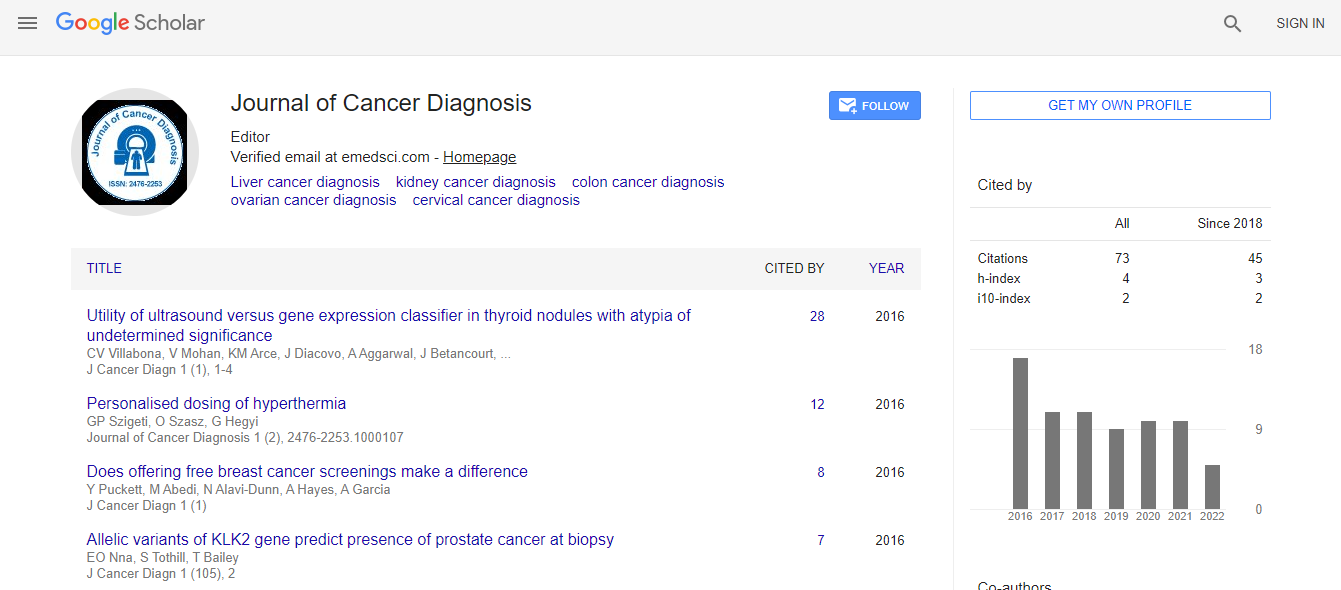Sarcoid-Like Reaction in Breast Cancers: A Single Center Experience
*Corresponding Author:
Copyright: © 2021 . This is an open-access article distributed under the terms of the Creative Commons Attribution License, which permits unrestricted use, distribution, and reproduction in any medium, provided the original author and source are credited.
Abstract
Introduction: Sarcoidosis is a common, often multi systemic idiopathic chronic inflammatory disease diagnosed histologically by findings of epithelioid non caseating granulomas. While Fluorodeoxyglucose FDG-avid lymph nodes on Positron Emission Tomography (PET) scan in a patient with histologically confirmed malignancy should raise suspicion for nodal metastases, sarcoidosis is a known cause of benign Fluorodeoxyglucose FDG-avidity in cancer patients and must be ruled out to avoid unjustified treatment and potential toxicities. Methods: A single-center retrospective study involving 46 female patients with breast cancer was conducted. Patients included in the study had been found to have new FDG-avid mediastinal and hilar lymphadenopathy on Positron Emission Tomography (PET) scan and had undergone Endobronchial ultrasound (EBUS) / Endoscopic ultrasound (EUS) with TBNA (Trans-Bronchial Needle Aspiration). Results: Of the 46 patients in the study, 31 patients (67.4%) were found to have lymph node metastases, noncaseating granulomas consistent with sarcoid-like reactions were found in 3 patients (6.5%), and negative exam (neither sarcoid-like reactions nor nodal metastases) was found in 12 patients (26.10%). Conclusion: Pathological examination of hyper metabolic nodes must be carried out in cancer patients with PET scan findings concerning for lymph node metastases to prevent misdiagnosis and overtreatment.

